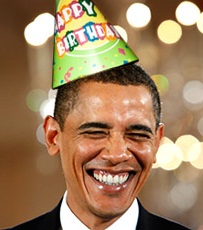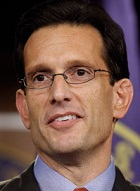I arrived in London last week — July 4th — to be greeted by a media storm overtaking the mother country. This news hurricane currently overtaking the media should really be re-titled “Time to Beat Up on Rupert Murdoch.”
As a journalist, it is always exhilarating to be in a great city when great news is being made, though I took strong issue with the media slant of this particular story.
Missing from all the sensational reporting is the fact that Murdoch is not well liked by the liberal establishment in Britain or in the United States. But this bias against Murdoch cannot deny the fact that Murdoch has played a key role in shaping our world today, including helping the West to defeat communism.
The allegations coming out of Britain are serious and should be investigated by the authorities, though I don’t believe Murdoch himself would ever have sanctioned criminal activities. During the mid 1990s, I worked briefly for the Murdoch empire at the New York Post. Such practices that have surfaced in Britain simply would never have happened at the Post.
Murdoch has, justifiably, moved to close his newspaper, The News of the World, and taken other serious actions to address these abuses.
In fact, many of the recent sensational press disclosures were actually provided to the official investigators by Murdoch’s own media company, which has been working closely with the police since the hacking allegations first arose two years ago.
Now, there is significant evidence that the details of this scandal were systematically leaked to the press here as Murdoch’s company, News Corp., was on the brink of getting government approval to gain 100 percent control of BSkyB, the satellite provider of cable channels for the United Kingdom.
Murdoch had created BSkyB from the ether, investing billions over time, to make it a powerhouse throughout the U.K. His news channel Sky News is the “must-watch” news channel of Britain. (Interestingly, Sky News’ coverage of this scandal has been harshly critical of News Corp.)
Murdoch’s company owns 40 percent of BSkyB, making him the controlling shareholder. He made a bid to purchase the remaining outstanding shares, and having gone through a dizzying regulatory process, he was nearing his last and final government approval when the proverbial dung hit the fan this week.
Being an eyewitness to the news, I have had a front-row seat to the unfolding drama.
For sure, there is triumphant glee among Murdoch’s longtime critics that he, his company, and his influence are under fire. And, these same critics are hoping the scandal may actually derail the final approval of BSkyB’s ownership by News Corp.
If that happens, it will be a sad day for British and American interests in Europe.
The Conservative Party government in Westminster, led by Prime Minister David Cameron, was set to give its final stamp of approval to the deal. But more than 100,000 complaints have flooded in. Now, the government moved to put the application before another regulatory authority.
Interestingly, these “complaints” were received with the help of all-too conveniently organized left-wing websites that had been set up just in case some major “news” broke about Murdoch’s papers. What a coincidence!
And this really gets me to the guts of my story, the real backdrop: The left hates Rupert Murdoch.
Most Americans don’t know that it was Rupert Murdoch, an Australian and “outsider,” who came to Britain in the late 1960s and began shaking up the media establishment.
It was Murdoch and his newspapers that elected Margaret Thatcher, taking Britain out of its socialist coma. Were it not for Murdoch, it is doubtful the Iron Lady would have ever emerged.
Thatcher, with Murdoch’s support, broke the power of the labor unions and their lock grip over the British economy. Without Murdoch, there would never have been a Reagan-Thatcher alliance defeating the Evil Empire. And Britain would not be today a first-rate European power.
Murdoch was not just a player in this. He was the key player.
In the United States, Murdoch has also made his mark in several significant ways.
Arguably, his first great triumph happened soon after he arrived in the United States — he bought the New York Post in 1976.
Murdoch and his paper saved our greatest city, New York. Back in the ’70s, the Big Apple was on the brink of insolvency.
Indeed, New York was on the path to become another Detroit; that is, until Murdoch decided to use the Post, then the third-most-read daily, to endorse Ed Koch, a dark-horse candidate and Democratic congressman in the 1977 mayoral election. Murdoch cleverly used a lottery style marketing program called Wingo, which, in the months leading up to the mayoral election, caused the Post’s circulation to mushroom.
Koch won that election handily, thanks to Murdoch. In my book, Koch saved New York by rolling back the power of the municipal unions that were a key factor in leading the city toward bankruptcy.
Just a few weeks ago I saw my longtime friend Ed Koch in New York.
I raised the subject of Rupert Murdoch, and Koch bluntly said he would never have been mayor of New York had it not been for him.
Today, Murdoch is best known for owning Fox News. We all know that Fox News, which trounces its cable media competitors (combine their audiences and multiply by 3 — that’s how badly Fox drubs them), is anathema to the liberal establishment.
In 1996, in a brilliant move, Murdoch tapped Roger Ailes to head this fledgling cable network. With Ailes’ genius and $1 billion in capital, Murdoch gave Fox a lift for a flight that is still ascending.
Back in Britain, the official investigations into the phone-hacking scandal will continue, as they should. But it’s important to remember that there is much more to the story not being reported — that the establishment doesn’t like Rupert Murdoch.
Why don’t they like him? As the venerable Margaret Thatcher might say, “He’s one of us.”
Interesting.




 election. His actual birthday is Aug. 4.
election. His actual birthday is Aug. 4. increase, we shouldn't do so in a way that raises taxes and impedes the ability of small businesses to create jobs and get people back to work," House Majority Leader Eric Cantor said Friday following the news that unemployment jumped to 9.2 percent in June.
increase, we shouldn't do so in a way that raises taxes and impedes the ability of small businesses to create jobs and get people back to work," House Majority Leader Eric Cantor said Friday following the news that unemployment jumped to 9.2 percent in June.